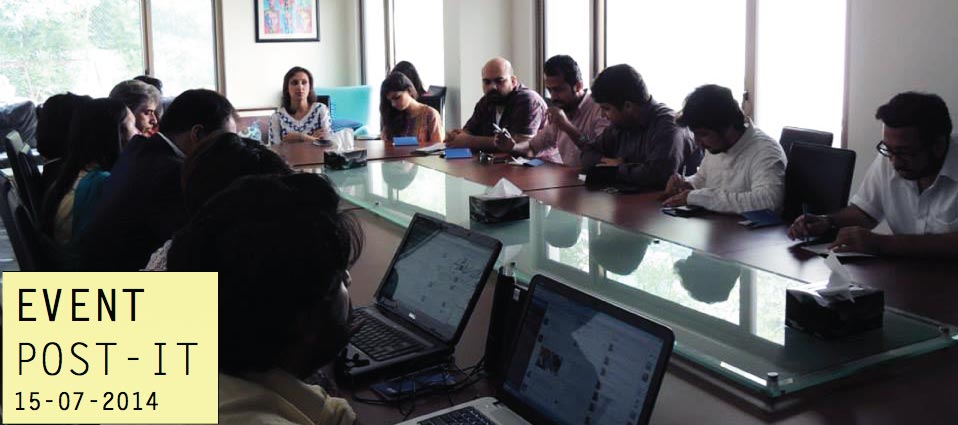Round Table
IDP Crisis: Assessing Gaps in Humanitarian Response
Date: July 15, 2014
Islamabad – July 15, 2014: With internally displaced people (IDPs) continuing to pour out of North Waziristan in the aftermath of the military operation, the scale of the humanitarian crisis continues to grow with over 950,000 people now registered as IDPs. In light of this issue, the Jinnah Institute organised a roundtable in Islamabad on Tuesday titled “IDP Crises: Assessing Gaps in Humanitarian Response”. The event, which was attended by policy experts, relief workers, journalists and civil society activists, was aimed at identifying policy gaps and seeking recommendations. Participants shared their on-the-ground experiences and highlighted recurring problems in providing timely and adequate assistance to IDPs.
Participants raised concerns over lack of contingency planning prior to the launch of the operation and pointed out that delay in intimation of the operation has been responsible for the lack of coordinated response from the government and humanitarian relief organization. It was felt that there was a clear lack of capacity amongst relevant authorities for dealing with the fallout of the operation. Basic relief goods, including clean water, food supplies and medicines are said to be running out fast, with some participants complaining that a security overhang on IDP response is hampering humanitarian assistance.
The location of the IDP camp, currently set up at Bakkakhel, was also a major source of contention. Participants noted that only 350 people are currently living in the camp, with the rest assumed to have been absorbed within Bannu district itself. The IDPs have admitted to security concerns in living within the camp, and have tended to prefer living within Bannu district. While some said that most of those living amongst the host population were staying in either their second homes or with families, others claimed that the majority were living in makeshift locations.
One of the most pressing concerns was the issue of the schools in Bannu. According to people who had visited the area, there were IDPs living in the 1100 schools within the district. The provincial government had originally announced that the schools would be used as IDP camps, but this was later rejected by the local security authorities. However, the displaced populations had moved in to these locations, and the concern was that once the schools reopen in August this population would be displaced once more.
Participants raised concerns that the current round of displacement has become the most politicized IDP crises in the country hampering relief efforts and resulting in lack of coordination between the federal government, the provincial government and the military. The lack of civilian oversight and access to IDP camp and distribution centers was also raised as a serious limitation in ensuring coordinated relief assistance.
Other concerns raised by participants included the lack of access for journalists and humanitarian relief organisations, particularly in FR Bannu and the delay in issuance of relevant NOCs by security agencies. Another immediate concern was that proscribed militant organisations under the garb of charitable foundations had started relief work in the area, while other humanitarian NGOs were facing problems in access.
Similarly, participants recommended that government agencies must institute effective mechanisms for coordinating humanitarian response and institute an information dissemination campaign at the local and national level for IDPs.
Despite these concerns, some participants urged caution in assessing the overall situation. For example, it was pointed out that one reason that the number of registered IDPs was higher than the estimated population of North Waziristan was due to duplication and errors, with the number expected to decrease by a third once NADRA verification has been completed.
It was also pointed out that IDP families were still entering the country from Kurram agency via Afghanistan and that the Kurram registration centers were likely to remain open even after registration centers in Bannu has stopped registration of new IDPs.
The participants also discussed the potential timeline of the operation and the consequent relief efforts, as well as discussing various recommendations and policies that can be implemented. Great emphasis was laid on the lack of relief being provided to those families who have been unable to move out of North Waziristan. Participants urged the government to ensure that families within the agency are treated as affected population and immediate are taken to ensure relief outreach to these vulnerable households.
The participants included Saifullah Mehsud (FRC), Rabia Khattak (UNDP), Nizam Dawar (TDN), Mubashir Zaidi (Dawn), Mohammad Haseeb (FDMA), Sophia Saifi (CNN), Asad Hashim (Al Jazeera), Hassan Belal (Dawn), Rehan Khan (APP), Mahvish Ahmad (Tanqeed), Taha Siddiqui (Christian Science Monitor/France 24), Madeeha Ansari and others. The event was part of the Jinnah Institute’s Open Democracy Initiative, which aims to bridge the gap between citizens and state and to formulate and articulate policy responses based on inclusive research. The Jinnah Institute actively seeks to articulate independent national security strategies for Pakistan which incorporate the country’s strategic imperatives while providing room for constructive engagement with the international community, as well as policy and opinion makers.
Coverage: Dawn, Express Tribune, NaiBaat, Dunya

